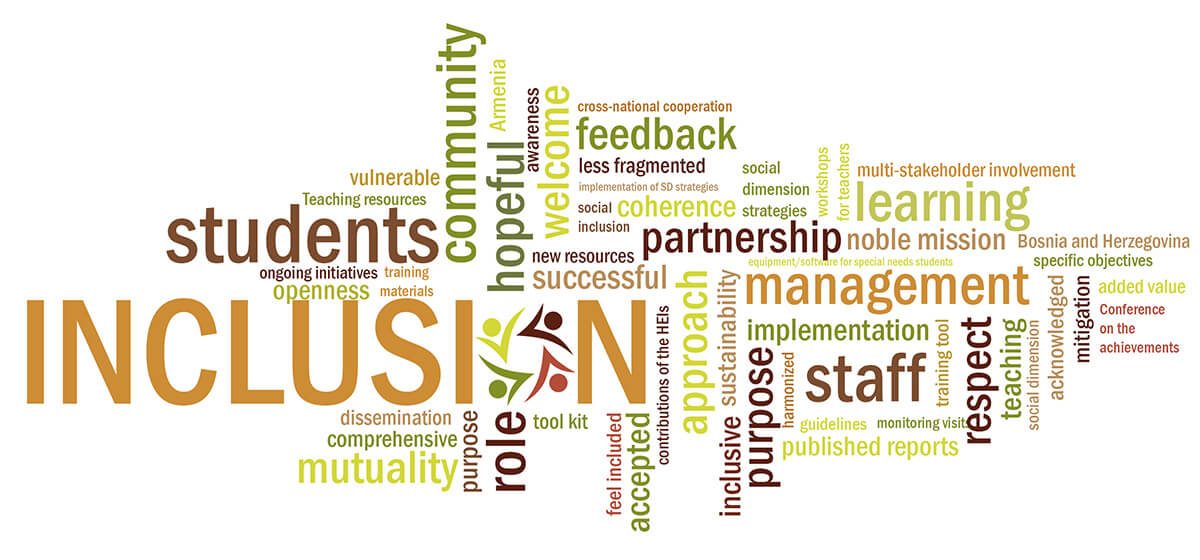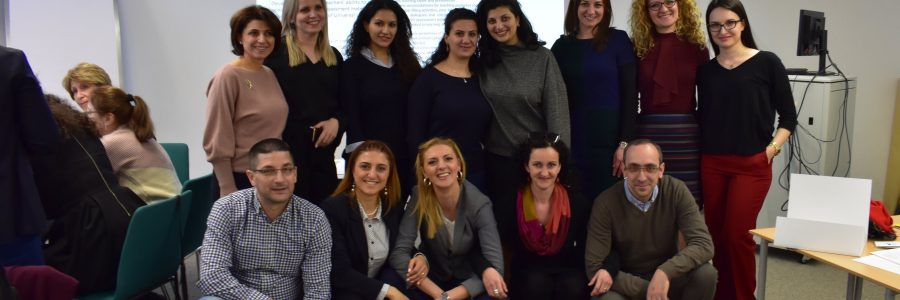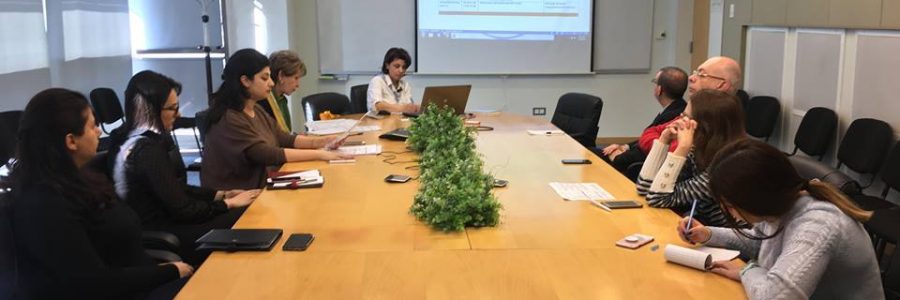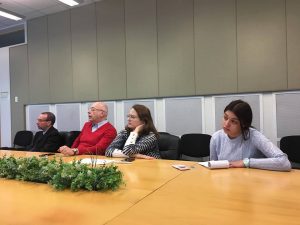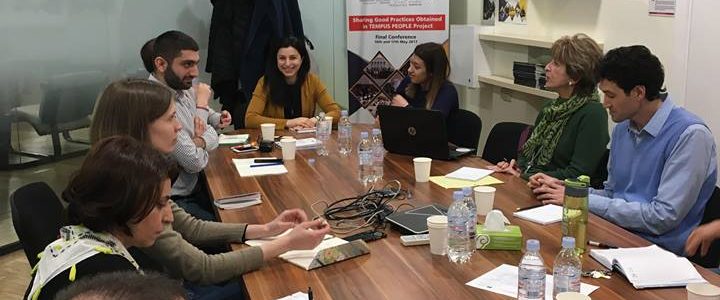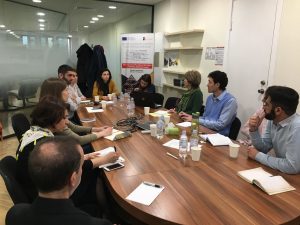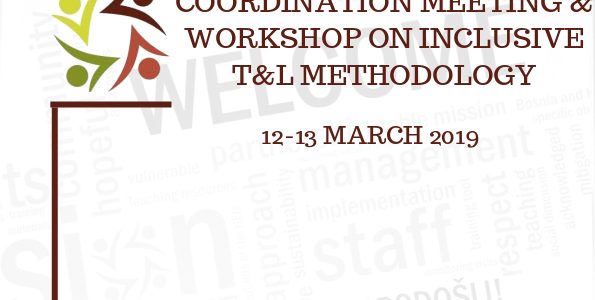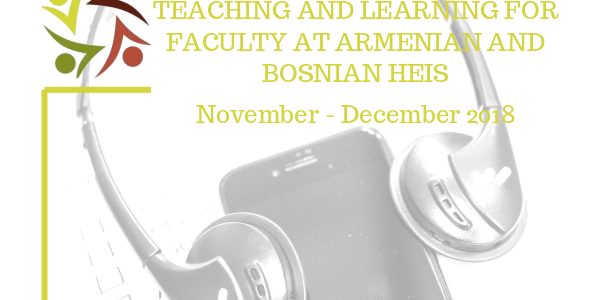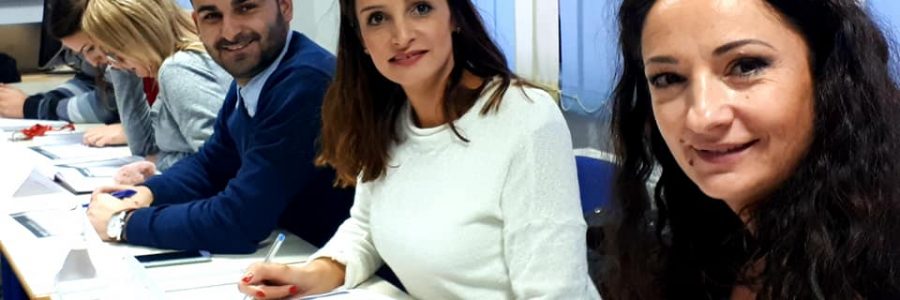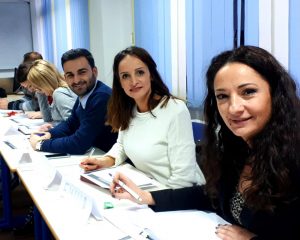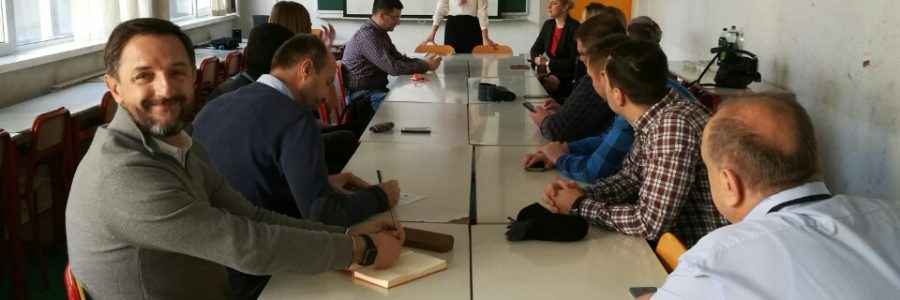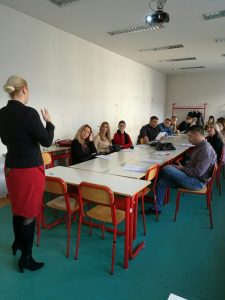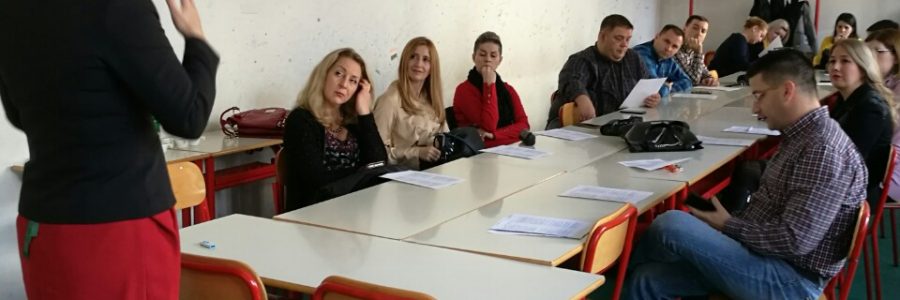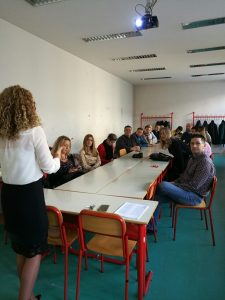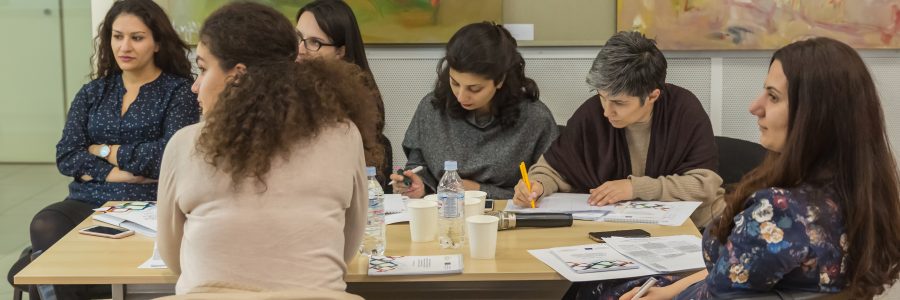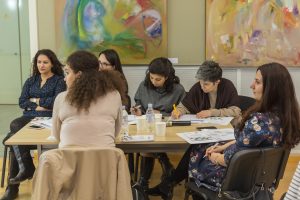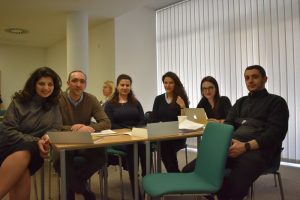 University of Graz hosted ERASMUS + INCLUSION project consortium members for a two- day coordination meeting and workshop on March 12-13, 2019. The main aim of the meeting was to summarize the current progress of the project highlighting the gaps and activities to be implemented before the final conference.
University of Graz hosted ERASMUS + INCLUSION project consortium members for a two- day coordination meeting and workshop on March 12-13, 2019. The main aim of the meeting was to summarize the current progress of the project highlighting the gaps and activities to be implemented before the final conference.
The first day of the meeting started with a workshop on inclusive teaching and learning methodology. Consortium partners finalized Guideline on Inclusive Teaching and Learning Methodology and briefly represented the main points highlighted in the document. Armenian and Bosnian partners made presentations on the national guidelines for inclusive higher education and received feedback from the European colleagues for the further improvements. American University of Armenia, being responsible for WP4, represented draft of the toolkit for inclusive teaching and learning methodology for high school teachers.
Second day started with monitoring sessions with the partner universities. The main aim of the monitoring was to understand the progress achieved in addressing the challenges mentioned during the previous monitoring report and further activities the institutions plan to reach the goals of the project. The monitoring team discussed also the activities to be implemented by the institutions for ensuring sustainability of the project.
State Academy of Fine Arts of Armenia, as a coordinating institution, conducted coordination meeting discussing project’s overall management, sustainability, quality control and monitoring, as well as financial and technical issues. Coordination meeting ended with the discussion of the final conference to be held in September, 2019.
